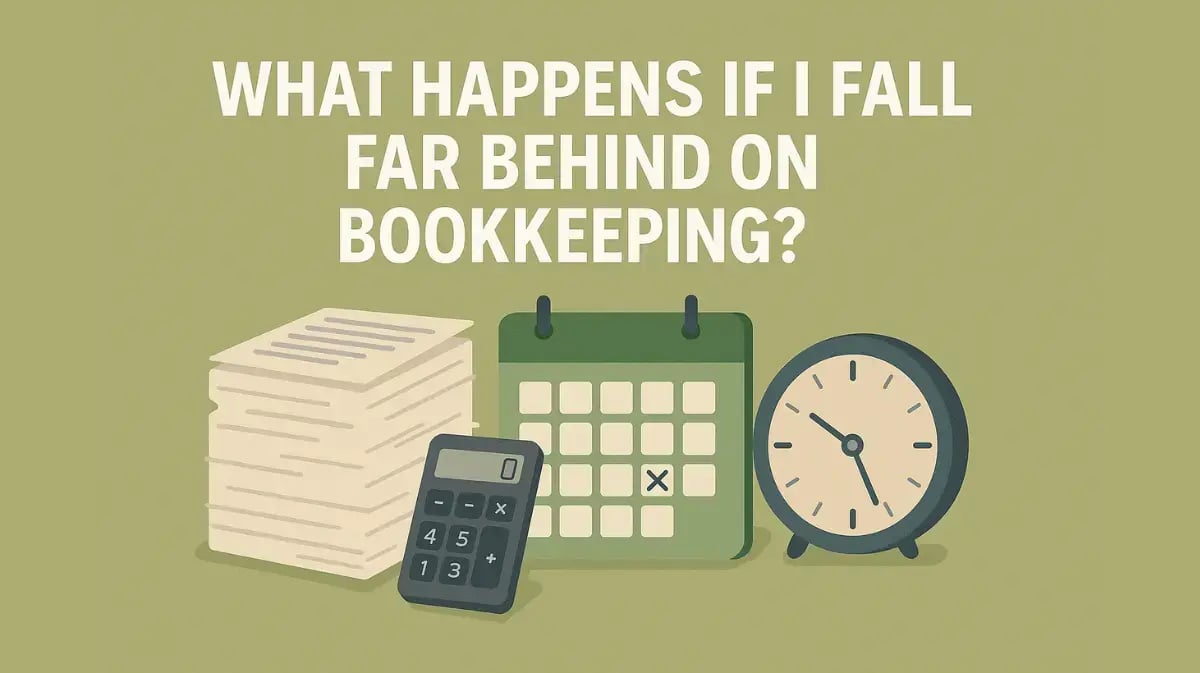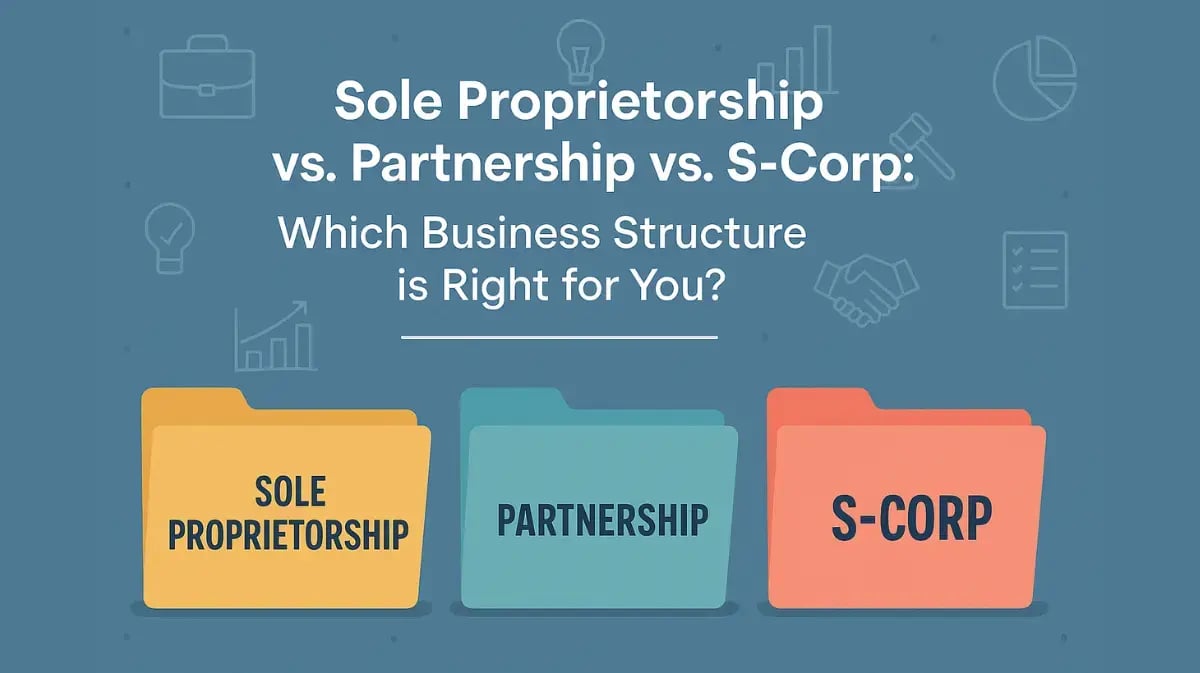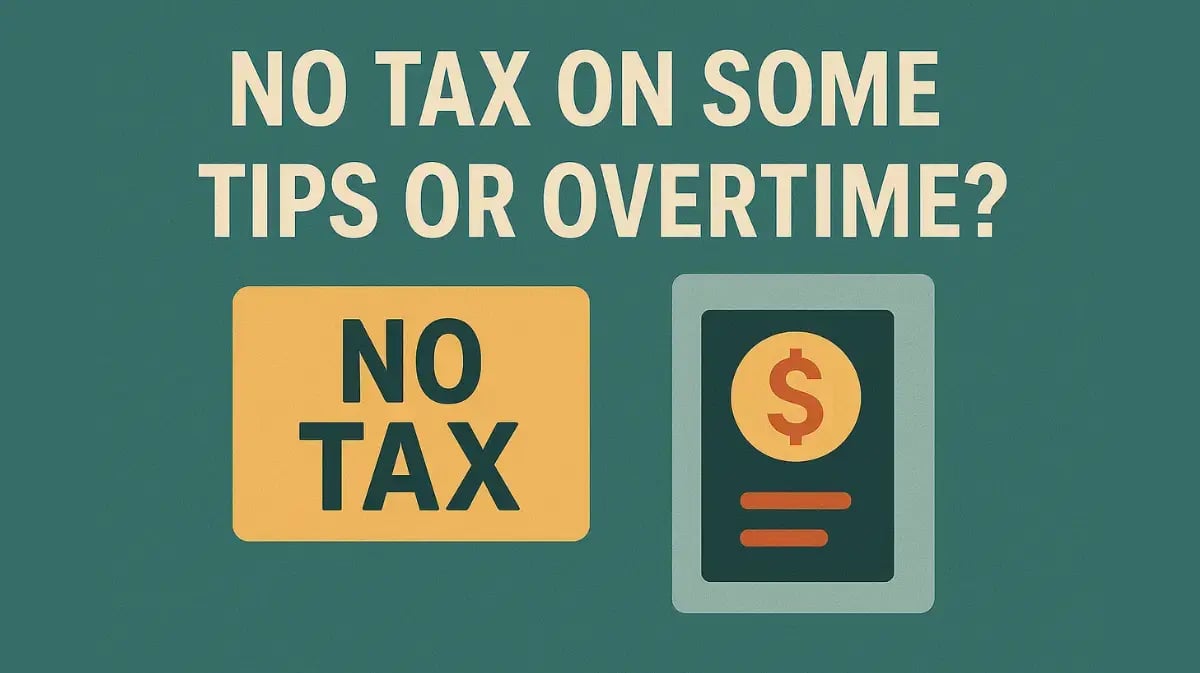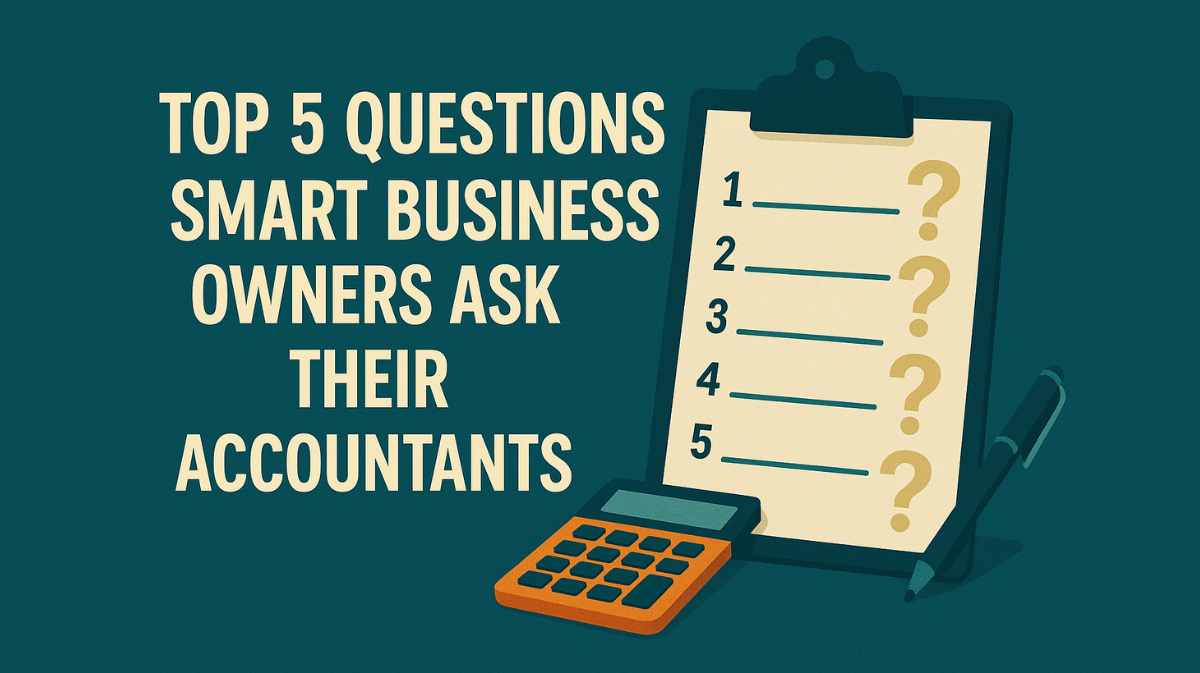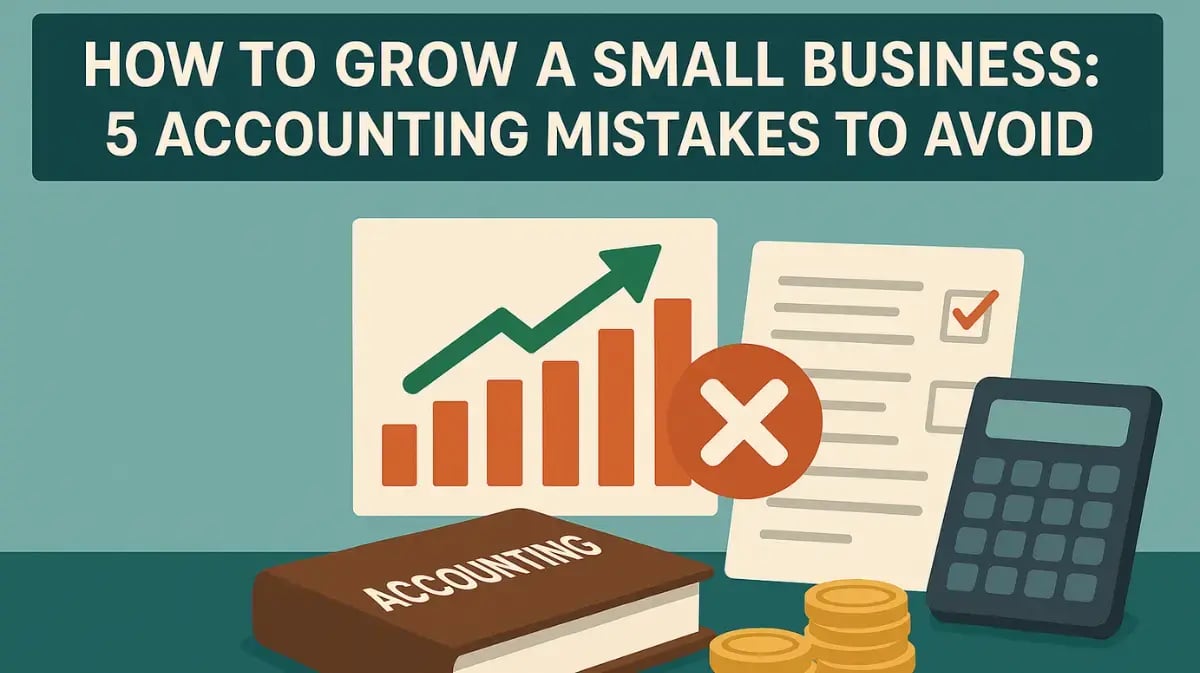Update on Luxury Auto Depreciation Deductions for Businesses
July 11th, 2023
3 min read

Federal income tax deductions for taxpayers who use passenger autos more than 50% for business were permanently expanded by the Tax Cuts and Jobs Act (TCJA). These increased depreciation allowances are indexed annually for inflation. Here's what you should know about depreciation allowances for passenger autos that are classified as luxury autos for 2023 and yet-to-be-filed 2022 federal income tax returns.
The Basics
For new and used passenger autos driven over 50% for business, the TCJA increased the so-called luxury auto depreciation limitations. For this purpose, passenger autos include cars and SUVs, trucks and vans with gross vehicle weight ratings (GVWRs) of 6,000 pounds or less.
Annual inflation-adjusted allowances assume 100% business use. If business use is more than 50% but less than 100%, the allowances are proportionately reduced.
The luxury auto depreciation limitations are the same for cars, light SUVs, light trucks, and light vans. (Before the TCJA, the limits for light trucks and light vans were slightly higher.)
If first-year bonus depreciation is claimed for a new or used passenger auto, the maximum first-year luxury auto depreciation allowance is increased by $8,000. However, to claim first-year bonus depreciation for a used vehicle, it must be new to the taxpayer (you or your business entity).
2022 Limitations
If you haven't yet completed your 2022 tax return, you might be interested in reviewing last year's inflation-adjusted limits. For passenger autos placed in service in 2022, the maximum luxury auto depreciation deductions are:
- $19,200 for year 1 if bonus depreciation is claimed ($11,200 if bonus depreciation isn't claimed),
- $18,000 for year 2,
- $10,800 for year 3, and
- $6,460 for year 4 and thereafter until the vehicle is fully depreciated.
For vehicles acquired and placed in service in 2022, the $11,200 first-year luxury auto depreciation limit applies only to vehicles that cost $56,000 or more. If the first-year bonus depreciation of $8,000 is claimed, the $19,200 first-year luxury auto depreciation limit applies only to vehicles that cost $64,000 or more.
2023 Limitations
For passenger autos placed in service in 2023, the maximum luxury auto depreciation deductions are:
- $20,200 for year 1 if bonus depreciation is claimed ($12,200 if bonus depreciation isn't claimed),
- $19,500 for year 2,
- $11,700 for year 3, and
- $6,960 for year 4 and thereafter until the vehicle is fully depreciated.
For vehicles acquired and placed in service in 2023, the $12,200 first-year luxury auto depreciation limit applies only to vehicles that cost $61,000 or more. If the first-year bonus depreciation of $8,000 is claimed, the $20,200 first-year luxury auto depreciation limit applies only to vehicles that cost $69,000 or more.
Rules for Nonluxury Vehicles
Less-expensive passenger autos used over 50% for business are depreciated as five-year modified accelerated cost recovery system (MACRS) property. For example, in 2023, Angela buys a $40,000 car that she uses 100% for business. She claims a first-year bonus depreciation of $8,000 for 2023. The car's cost is well below the annual inflation-adjusted threshold for the luxury auto limitation ($69,000 for 2023).
So Angela's allowable MACRS depreciation deductions are calculated as follows:
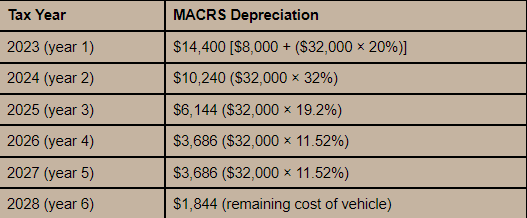
Rules for Heavy SUVs, Pickups, and Vans Used for Business
More-generous federal income tax depreciation rules can apply to SUVs, pickups, and vans with gross vehicle weight ratings (GVWRs) in excess of 6,000 pounds if they're used more than 50% for business. Specifically, these vehicles can potentially qualify for substantial first-year bonus depreciation and Section 179 deductions. Ask your tax advisor for details.
For More Information
The federal income tax rules for depreciating vehicles used over 50% for business vary depending on whether they're classified as passenger autos vs. heavy SUVs, trucks, and vans, and how much they cost. If you're considering buying a new or used vehicle to use in your business, check with your tax advisor before finalizing the deal to understand the tax results.
© 2023
Blog Disclaimer: Nothing in this post constitutes legal, tax, or financial advice and is intended for informational and educational purposes only. This informational and educational material is not intended, and must not be taken, as legal, tax, or financial advice on any particular set of facts or circumstances or as recommendations that are suitable for any specific person. You need to contact a lawyer, accountant, or financial adviser licensed in your jurisdiction for advice on your specific questions, issues, and concerns. View our full Terms of Use here.
Topics:










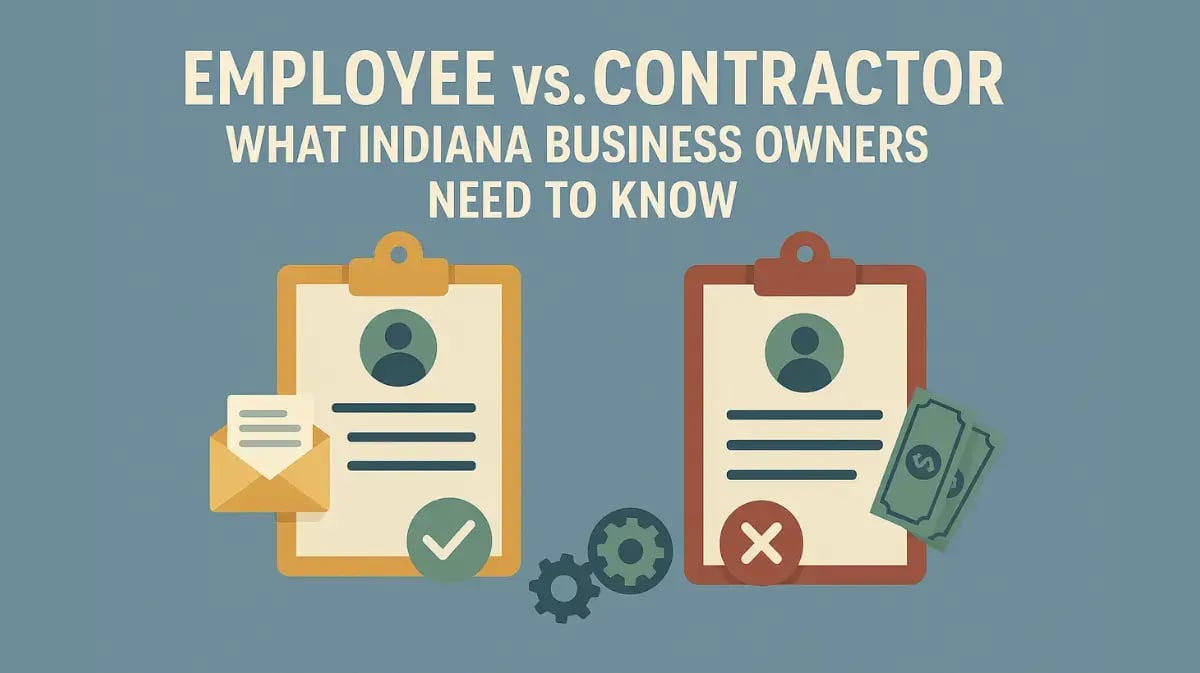

%20Early.webp?width=1200&height=673&name=5%20Consequences%20of%20Withdrawing%20from%20a%20401(k)%20Early.webp)

